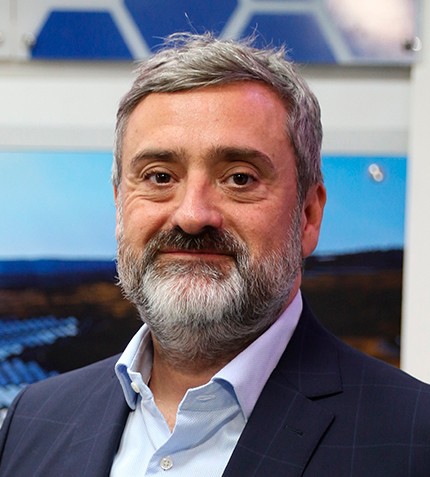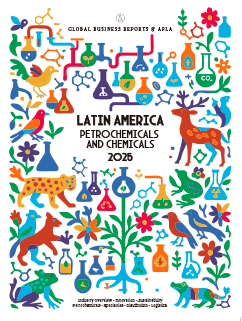
"Mexico has become the leading exporter to the US, surpassing China, underscoring its resilience and strategic importance within one of the world’s strongest economic blocs."
RELATED PUBLICATION
Martin Toscano
PRESIDENT – MEXICO, EVONIK
How has Evonik been performing in Mexico in 2025?
Nearly all Evonik business lines in Mexico are developing positively despite a general market slowdown in 2025. Strong areas include food and agriculture, animal protein, home and personal care, appliance, and automotive. Aerospace is also expanding, with global suppliers opening new sites in Mexico. Our pharmaceutical business line has been more challenging, but is expected to grow as Mexico’s government positions the sector as a strategic pillar, promoting collaboration and investment in medicine manufacturing as part of the Plan México.
What are the key challenges facing the chemical industry?
Globally, the chemical industry is undergoing structural transformation amid higher energy costs, regulatory pressures, supply chain disruptions, and geopolitical tensions.
In Mexico, 2025 has brought caution and slower momentum for many of our customers, with some investment decisions delayed pending clarity on trade policy and the upcoming USMCA renegotiation. As an export-driven economy reliant on the US, these uncertainties weigh heavily. Still, foreign direct investment continues in key sectors, underscoring Mexico’s enduring role as a strategic hub for manufacturing and exports.
How do you see the Mexican industrial sector today?
Manufacturing industries, particularly automotive and its suppliers, are working to comply with USMCA regional content requirements to preserve tariff-free access. Beyond automotive, industries such as aerospace, home and personal care, and appliances are also expanding Mexico’s role in North American supply chains.
Importantly, since almost two years now, Mexico has become the leading exporter to the US, surpassing China, underscoring its resilience and strategic importance within one of the world’s strongest economic blocs.
How important is Mexico’s chemical industry to its wider economy?
The chemical industry is central to Mexico’s nearshoring strategy and long-term competitiveness. Without a strong chemical base, manufacturing value chains cannot fully develop. Closer alignment with authorities is needed to create a common agenda supporting sector viability, including expansion of existing assets, clearer regulation, and competitive, compliant operations. Regulatory certainty and infrastructure improvements – especially in transportation and a reliable, sustainable, cost-competitive energy matrix – are critical to attract investment and strengthen Mexico’s industrial base.
In our industry, we also support job creation and skills development, including over 400,000 engineers graduating annually in Mexico. Collaboration with the public sector, including Pemex, will help reactivate petrochemical assets, ensuring a sustainable, competitive platform and securing Mexico’s position as a key manufacturing and export hub in global supply chains.
What is the focus of Evonik’s sustainability strategy?
Evonik’s sustainability strategy centres on our NextGen solutions, balancing both the ‘footprint’ of our operations and ‘handprint’ of our products and technologies.
Examples include biosurfactants for personal care, environmentally optimized animal feed, and specialty materials for electric vehicle challenges. Our technologies also support renewable energy, such as solar components and Sepuran membranes for biogas purification. These products will drive future growth, among many others existing and to come, requiring engagement across value chains to enable sustainable transformation in multiple industries.
What are some key milestones Mexico’s chemical industry must navigate in the near future?
Looking ahead, Mexico faces important decisions in the coming months regarding its regional agenda. I see strong alignment between the private sector and the authorities in handling ongoing tariff and geopolitical discussions with the US, including the USMCA renegotiation. These negotiations should soon provide greater clarity on Mexico’s role within North America, one of the world’s most important economic blocs, while also allowing Mexico to expand opportunities in Europe and other regions.
What are your priorities for Evonik over the coming year?
Our top priority is always the safety and well-being of our people, their families, our customers, and the communities where we operate. Safety guides every aspect of our chemical production and distribution and remains central to our operations.
Mexico is a critical market for Evonik in North America, with growing demand from multinational and domestic customers for collaboration and co-creation beyond transactional relationships. Key focus areas include sustainability, energy transition, and innovation, where the chemical industry plays an essential role.
Evonik is committed to remaining competitive, efficient, and a sustainable partner across all value chains, ensuring North America continues as a leading region for chemicals.











